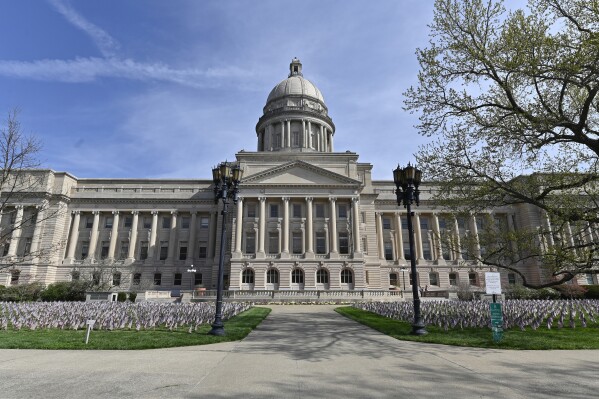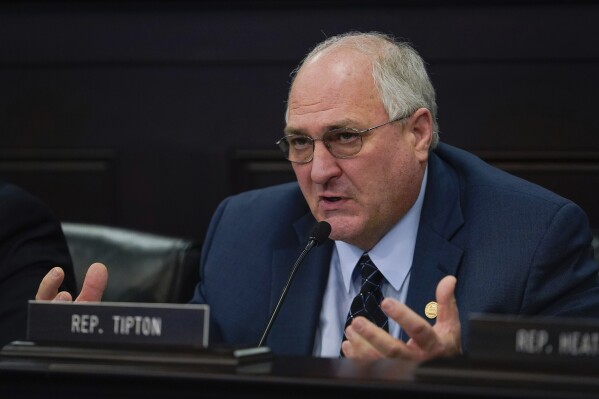Kentucky lawmakers advance proposed property tax freeze for older homeowners
FRANKFORT, Ky. (AP) — Kentucky lawmakers have advanced a proposed constitutional amendment meant to protect older homeowners from having to pay higher property taxes.
The measure cleared the Senate on a 32-2 vote Monday and goes to the House. If it wins approval in both chambers, the measure would be placed on this year’s general election ballot for voters to decide the issue. Lawmakers will decide in the coming weeks which constitutional changes, if any, to put on the statewide November ballot. Several other proposed constitutional amendments are being considered.
The property tax-related proposal would apply to Kentuckians age 65 and older who own their home and reside there. It would freeze the valuation of their home for tax purposes once they reach 65. One lawmaker said he’s been contacted by older people pleading for property tax relief.
Its supporters said the proposed constitutional protection is meant to shield older Kentuckians from being hit with property tax increases. They’ve already felt the sting from the post-pandemic surge in inflation, supporters said. The measure’s lead sponsor is Republican Sen. Michael Nemes.



The measure drew criticism, even among some supporters, for lacking a “means test,” which would result in wealthy, older Kentuckians benefiting from the property tax freeze as well as those in actual need.
The proposal’s supporters stressed that the intent is to help older Kentuckians on fixed incomes who are struggling to pay their property taxes.
“The purpose of this amendment is clearly to provide relief to those who can least afford a property tax increase,” said Republican Sen. Phillip Wheeler.
Republican Sen. Jimmy Higdon said he supported the proposed constitutional change on behalf of all the older Kentuckians who have ”called me begging for relief from the property taxes.”
Some senators cautioned that even a limited property tax freeze would have an impact on local governments and school districts that rely on property tax revenues.
___
The legislation is Senate Bill 23.
Disclaimer: The copyright of this article belongs to the original author. Reposting this article is solely for the purpose of information dissemination and does not constitute any investment advice. If there is any infringement, please contact us immediately. We will make corrections or deletions as necessary. Thank you.






